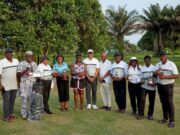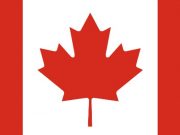Dr. Kayode Fayemi, the governor of Ekiti State has flagged off the conduct of the 6th edition of the Multiple Indicator Cluster Survey (MICS) in the state.
The Multiple Indicator Cluster Surveys (MICS) are household surveys implemented by countries under the programme developed by the United Nations Children’s Fund to provide internationally comparable, statistically rigorous data on the situation of children and women.
Speaking at the inauguration in Ado Ekiti, Governor Fayemi described the timing of the survey was apt for the State adding that it would support the ongoing efforts of the State Government to prepare the State Development Plan.
The Governor who spoke through the Commissioner for Budget and Economic Planning, Hon. Femi Ajayi said that the survey would also assist in tracking the Sustainable Development Goals (SDGs) and the Five-Point Agenda of the present administration.
Disclosing the areas to be covered by the Survey, he said it would capture data on household living conditions, basic educational development, child and maternal health, reproductive health, HIV-AIDS issues, water and sanitation, child abuse, misuse of drugs and alcohol among others.
According to him, the current survey would not only capture women and children but would include men and cover the general outlook of the family.
He charged field workers work diligently in order to achieve the desire goal of producing accurate and reliable data that will give the government necessary sense of direction in planning efforts on human development programs, stressing that the essence of the Survey was to generate robust statistical data for policy formulation.
In his remarks, the Acting Statistician General of the State, Mr. Olugbenga Oni described the programme as laudable adding that the priority given to collation of data by the present administration is also commendable.
The State Official of the National Bureau of Statistics, Mr. Folounso Alesanmi explained that the Survey would be carried out for two months in selected enumeration areas across the 16 Local Governments and there were 20 households in each of the enumeration area.
Packaged by Emmanuel Adeniran









































































